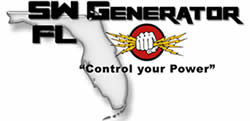Making the Right Choice for Your Power Needs
Introduction
Power outages can be frustrating and inconvenient, disrupting our daily lives and leaving us without essential utilities. To combat this issue, many homeowners turn to backup generators to ensure a continuous power supply during blackouts. When it comes to selecting a backup generator, two popular options stand out: whole house generators and portable generators. In this blog, we’ll explore the differences between these two types of generators and help you make the right choice based on your power needs and budget.
Whole House Generators: Powering Your Home Seamlessly
Automatic Operation:
A whole house generator, also known as a standby generator, is permanently installed outside your home and connected directly to your electrical system. It operates automatically, detecting power loss and switching on within seconds, ensuring a seamless transition to backup power without any effort on your part.
Power Capacity:
Whole house generators are available in various sizes, capable of supplying power to your entire home, including appliances, lighting, HVAC systems, and other essential devices. They are suitable for large homes or properties with high power demands.
Fuel Source:
Whole house generators can be powered by natural gas, propane, or diesel, providing a continuous fuel supply, which is especially advantageous during extended outages.
Noise Level:
These generators are generally quieter compared to portable generators, as they are housed in sound-insulated enclosures designed to minimize noise during operation.
Maintenance:
Whole house generators require professional installation and regular maintenance to ensure their reliable performance during emergencies.
Portable Generators:
Versatility and Affordability
Manual Operation:
Portable generators are standalone units that need to be manually set up and connected to your appliances or electrical system when a power outage occurs. They require more effort and time to get them up and running.
Power Capacity:
Portable generators come in various sizes, offering a range of power outputs. While they can provide power to essential appliances and devices, they may not be able to handle the entire load of a larger home.
Fuel Source:
Portable generators typically run on gasoline, which is readily available, but they consume fuel at a faster rate, necessitating refueling during extended outages.
Noise Level:
Portable generators are generally noisier compared to whole house generators, and their sound levels can be a concern, especially in residential areas.
Maintenance:
While portable generators are relatively easy to maintain, they lack the automatic self-checks and maintenance features found in whole house generators.
Choosing the Right Generator for Your Needs
When deciding between a whole house generator and a portable generator, consider the following factors:
Power Requirements:
Assess your power needs during an outage. If you need to power your entire home, a whole house generator is likely the better option. If you only require power for specific appliances or a few essential devices, a portable generator may suffice.
Budget:
Whole house generators are more expensive than portable generators, considering both the initial purchase and installation costs. Portable generators are more budget-friendly but may require additional expenses for extension cords and transfer switches.
Convenience:
Whole house generators offer automatic operation, requiring minimal intervention during a power outage. Portable generators demand manual setup and connection, which might be inconvenient during adverse weather conditions.
Noise Tolerance:
If noise is a concern, whole house generators are the quieter option due to their sound-insulated enclosures.
Conclusion
Both whole house generators and portable generators have their merits, and the choice ultimately depends on your specific needs and budget. If you prioritize seamless operation, have a larger home, and can afford the investment, a whole house generator offers unmatched convenience and reliability. On the other hand, if you have a smaller property, limited power requirements, and are looking for an affordable option, a portable generator can provide essential backup power during outages.
Whatever you decide, having a backup generator ensures that you won’t be left in the dark during unexpected power disruptions, providing you and your family with peace of mind and comfort in times of need.

